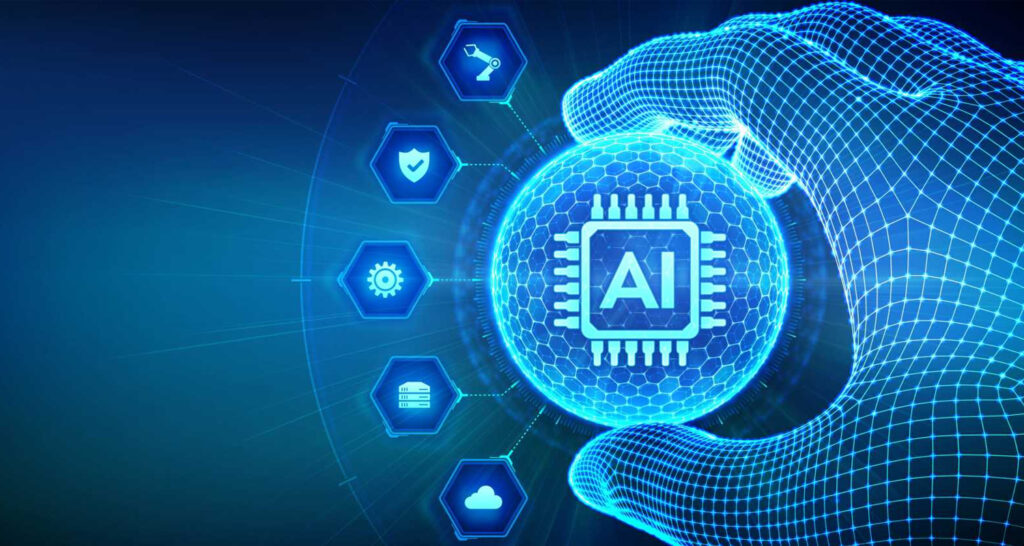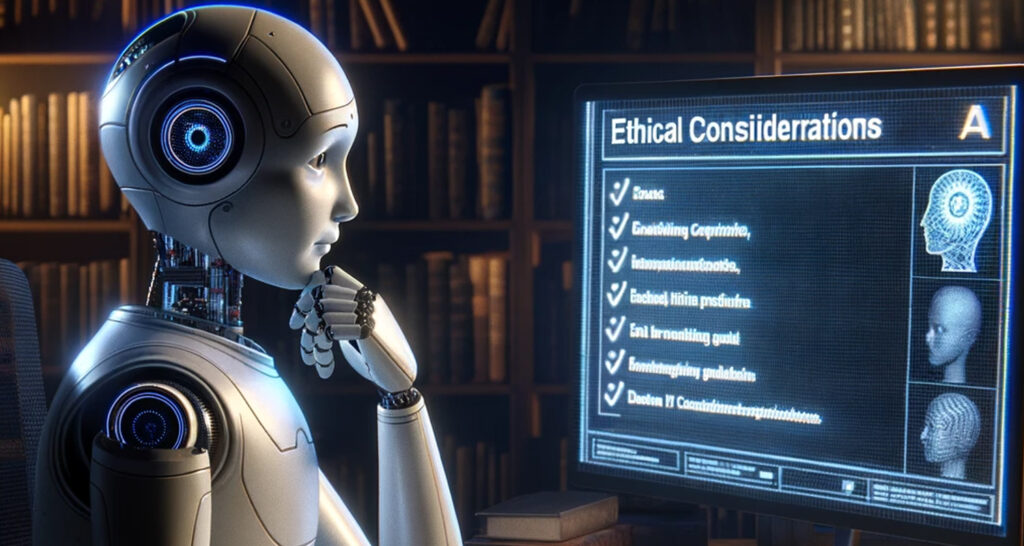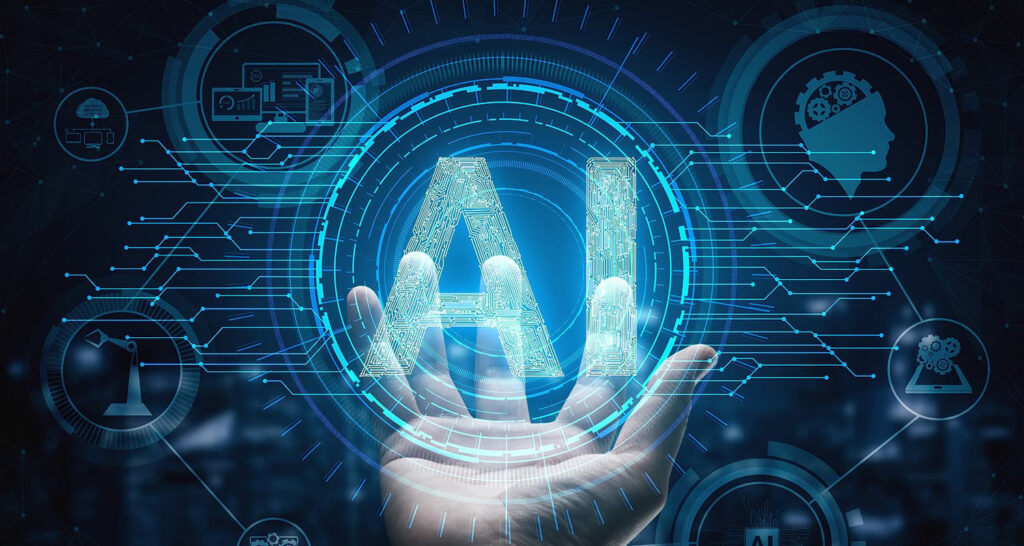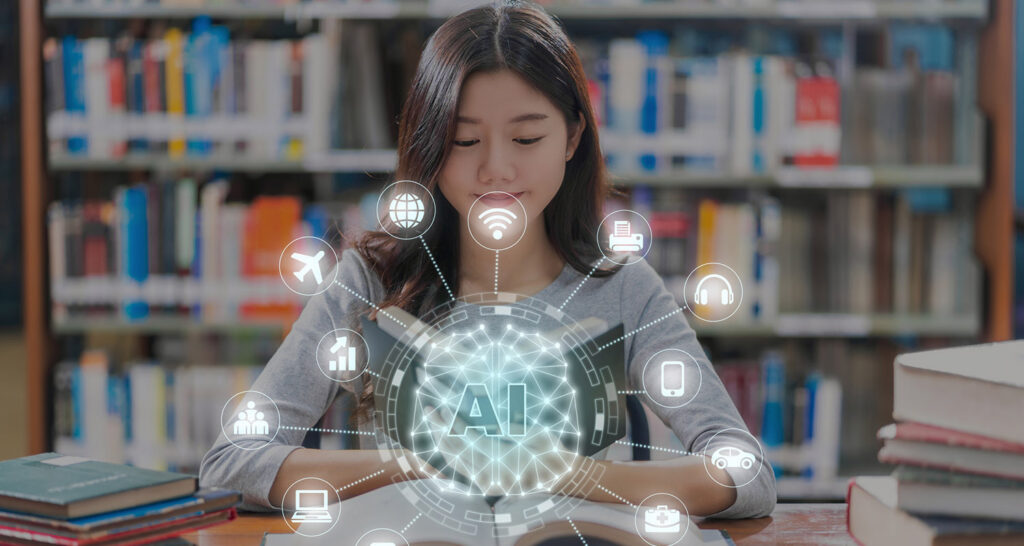Introduction to Artificial Intelligence (AI)
Artificial Intelligence, or AI, refers to the simulation of human intelligence in machines programmed to mimic cognitive functions such as learning, problem-solving, and decision-making. AI encompasses various technologies, including machine learning, natural language processing, computer vision, and robotics. Its applications span across various industries, from healthcare and finance to transportation and entertainment. AI systems can analyze vast amounts of data, identify patterns, and make predictions or recommendations based on insights gleaned from the data. Overall, AI holds the potential to revolutionize how we work, live, and interact with technology in the modern world.
AI in Various Industries

- Healthcare: AI transforms healthcare by enabling predictive analytics for disease detection, personalized treatment plans, and medical imaging analysis. For instance, AI-powered diagnostic systems can detect early signs of diseases like cancer from medical images, improving patient outcomes and reducing diagnosis times.
- Finance: In the finance sector, AI is revolutionizing fraud detection, algorithmic trading, and customer service. Chatbots powered by AI provide instant customer support, while machine learning algorithms analyze financial data to identify market trends and optimize investment strategies.
- Education: AI is enhancing education through personalized learning experiences, intelligent tutoring systems, and adaptive assessments. Educational platforms use AI algorithms to tailor curriculum content to students’ learning styles and abilities, leading to improved engagement and retention rates.
- Manufacturing: In manufacturing, AI-driven automation streamlines production processes, improves quality control, and enhances supply chain management. Robotics and AI-powered sensors optimize manufacturing workflows, reducing costs and increasing efficiency.
- Transportation: AI is revolutionizing transportation with the development of autonomous vehicles, traffic management systems, and predictive maintenance solutions. Self-driving cars use AI algorithms to navigate roads safely, while AI-powered traffic management systems optimize traffic flow and reduce congestion.
- Entertainment: In the entertainment industry, AI algorithms are used for content recommendation, personalized marketing, and content creation. Streaming platforms leverage AI to analyze user preferences and recommend relevant content, enhancing user satisfaction and retention.
AI adoption across various industries leads to increased efficiency, improved decision-making, and enhanced customer experiences, driving innovation and growth in the global economy.
Ethical Implications of AI

- Bias in Algorithms: One of the major ethical concerns surrounding AI is the presence of bias in algorithms, which can lead to discriminatory outcomes. Biases in training data or algorithm design can result in unfair treatment of certain groups, perpetuating existing social inequalities.
- Data Privacy Concerns: AI systems often rely on vast amounts of data, raising concerns about privacy and data security. Unauthorized access to personal data or data breaches can have serious consequences for individuals, including identity theft, financial fraud, and invasion of privacy.
- Impact on Employment: The increasing automation enabled by AI technology raises questions about its impact on employment. While AI has the potential to increase productivity and create new job opportunities, it also threatens to displace workers in certain industries, leading to unemployment and economic disruption.
- Real-World Examples: Examples of AI-related ethical dilemmas include facial recognition systems exhibiting racial bias, algorithmic decision-making in criminal justice systems leading to unfair sentencing, and autonomous vehicles facing moral dilemmas in potential accident scenarios.
- Importance of Responsible AI Development: Responsible AI development entails ensuring transparency, fairness, and accountability throughout the AI lifecycle. It involves implementing ethical design principles, promoting diversity and inclusivity in AI development teams, and establishing governance frameworks to address ethical concerns.
Addressing the ethical implications of AI is essential to ensure that AI technologies are developed and deployed in a manner that upholds ethical standards, protects individual rights, and promotes societal well-being. Effective governance frameworks and responsible AI development practices are crucial in navigating these complex ethical challenges.
Future Possibilities and Trends

Advancements in Machine Learning, Natural Language Processing, and Computer Vision:
The future of AI holds promising advancements in key areas such as machine learning, natural language processing (NLP), and computer vision. Machine learning algorithms will become more sophisticated, capable of handling larger datasets and making more accurate predictions. NLP techniques will enable AI systems to understand better and generate human-like language, revolutionizing communication and information processing. Similarly, advancements in computer vision will enhance AI’s ability to interpret and analyze visual information, leading to improved image recognition, object detection, and scene understanding.
Potential Societal Impacts:
Future AI developments have the potential to have profound societal impacts, including augmented intelligence, human-AI collaboration, and the concept of AI singularity. Augmented intelligence refers to the symbiotic relationship between humans and AI, where AI enhances human capabilities rather than replacing them entirely. Human-AI collaboration will become increasingly common in various domains, from healthcare and education to creative industries, as humans and AI systems work together to solve complex problems and achieve shared goals. The concept of AI singularity, where AI surpasses human intelligence and becomes self-improving, raises questions about the future of humanity and the ethical implications of creating superintelligent machines.
Shaping Our Lives, Work, and Interactions:
In the coming years, AI is poised to reshape our lives, work, and interactions in profound ways. From personalized healthcare and autonomous transportation to intelligent virtual assistants and automated decision-making systems, AI will permeate various aspects of daily life. Workforce automation driven by AI will lead to shifts in job roles and skill requirements, necessitating continuous learning and adaptation. Moreover, AI-powered technologies will transform how we interact with digital devices, services, and each other, creating new opportunities for innovation and collaboration.
Challenges and Limitations

Data Biases:
One of the significant challenges in AI is the presence of data biases, where algorithms learn from biased training data, leading to discriminatory outcomes. Biases in data collection, labeling, and processing can result in unfair treatment of certain groups and perpetuate societal inequalities.
Algorithmic Transparency:
The lack of transparency in AI algorithms poses challenges in understanding how AI systems make decisions. The opacity of algorithms, often referred to as the “black box” problem, makes it difficult to interpret their reasoning processes and assess their reliability and fairness.
Potential Risks
- Job Displacement: The increasing automation enabled by AI technologies raises concerns about job displacement and economic disruption. As AI and robotics replace certain tasks and roles, workers in affected industries may face unemployment or the need to acquire new skills to remain employable.
- Algorithmic Discrimination: AI systems may inadvertently perpetuate or exacerbate existing biases and discrimination present in society. Biased training data or flawed algorithms can lead to discriminatory outcomes in areas such as hiring, lending, and criminal justice, reinforcing systemic inequalities.
- Misuse of AI for Malicious Purposes: There are risks associated with the misuse of AI for malicious purposes, including cyberattacks, misinformation campaigns, and surveillance. Malevolent actors may exploit AI technologies to manipulate public opinion, breach cybersecurity defenses, or conduct targeted attacks, posing threats to individuals, organizations, and society at large.
Public Perception and Education

Addressing Misconceptions and Fears:
Many common misconceptions and fears about AI stem from its portrayal in popular media and cultural narratives. AI is often depicted as a sentient, superintelligent entity capable of outsmarting and overpowering humans, leading to concerns about AI taking over the world or replacing human jobs entirely. However, these portrayals often exaggerate the capabilities of current AI technologies and overlook the nuanced realities of AI development and deployment.
Advocating for AI Literacy and Public Education Initiatives:
To address these misconceptions and fears, there is a pressing need for increased AI literacy and public education initiatives. AI literacy programs can help individuals develop a deeper understanding of AI technologies, including how they work, their limitations, and their potential societal impacts. These initiatives can include workshops, online courses, and educational resources designed to empower individuals to make informed decisions about AI adoption and usage.
By promoting AI literacy and public education, we can foster a more informed and nuanced public discourse around AI, dispelling myths and misconceptions while promoting a more balanced understanding of its capabilities and implications. Ultimately, increased AI literacy can empower individuals to engage critically with AI technologies, participate in discussions about AI ethics and governance, and advocate for responsible AI development and deployment practices.
In conclusion, the profound impact of Artificial Intelligence (AI) on society spans across various industries, from healthcare and finance to education and entertainment. While AI offers immense potential for innovation and advancement, it also presents ethical considerations, challenges, and risks that must be addressed responsibly. By fostering AI literacy, promoting transparency, and advocating for ethical AI development, we can harness the transformative power of AI while mitigating its negative consequences. As we navigate the future of AI, collaboration, education, and ethical awareness will be essential in shaping a society where AI serves as a force for positive change.
